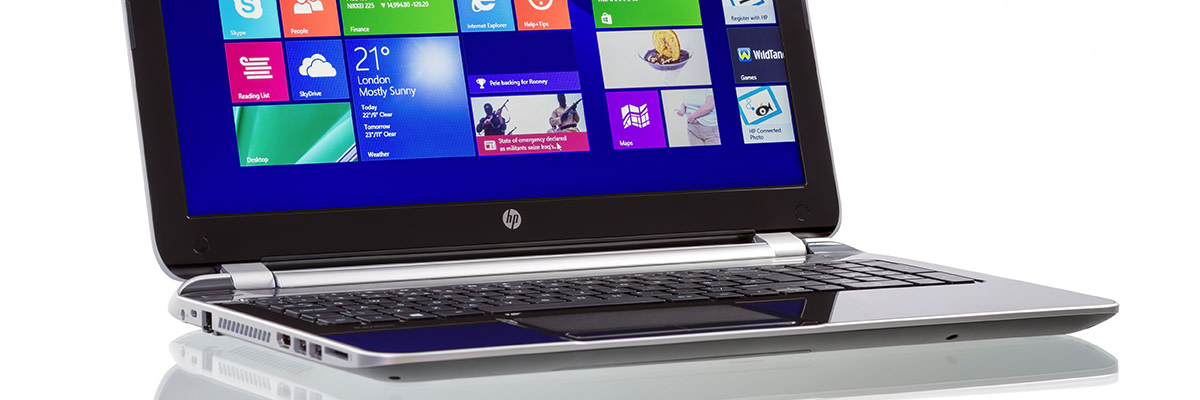
Return navigate_next
Who Makes the Best Laptop — Dell or HP?
September 8, 2020 *
Dell and HP both have storied histories that date back to 1984 and 1934, respectively. Currently, as of September 2020, HP is the world’s largest seller of laptops, while Dell is in third place.
Michael Dell began building his empire while in college and for many years dominated the PC industry with computers best known for solid performance at prices far lower than the competition. Dell essentially set the price point that other manufacturers had to meet if they wanted to compete.
Bill Hewlett and Dave Packard met in 1934, and today the company is 81 years old with virtually universal acknowledgment as an organization that designs, builds, and delivers first quality computer products and. For many years they also manufactured medical devices which underwent the ultimate scrutiny for quality and helped set HP’s legendary reputation for reliable, first-rate products.

How to Find What’s Best for You
While both companies offer an entire family of laptops, deciding which is the best relies on several factors. From the manufacturer’s standpoint, quality is determined by the components used, the quality assurance program in place, and a host of design parameters. For instance:
- Did the company use chips and other components from top-tier manufacturers? Or did they scrimp and save by using second-rate components?
- Does the quality assurance program effectively capture defects like dead pixels and other problems before the laptop leaves the factory?
These and similar factors all contribute to the quality of any computer. However, you won’t be buying sub-standard laptops whether you choose Dell or HP.
From the user’s point of view, what’s “best” depends on how you’ll use the laptop. If you’re a serious gamer, you’ll need a laptop with a powerful GPU (graphics processing unit) and a fast, multi-core CPU. Buying a laptop designed for the casual user who only sends email, browses the web, and streams video won’t need the performance that heavy-duty gaming requires.
So, be sure to look for specs that best match your intended use. Here are a few that can help sort through the many choices as you compare Dell versus HP.
- CPU clock speed, CPU cache size, and the number of cores. In each case, larger numbers relate to higher performance.
- Speed of the front side bus (aka “system bus”). The faster the bus the greater performance.
- The amount of RAM (internal working memory) and its speed both determine performance. While machines with 4GB of RAM can handle basic tasks, make sure the machine isn’t limited to 4GB. A laptop with 8GB (or more) of RAM is a better choice. More RAM gives better performance.A It can even extend the useful life of the machine, as Microsoft releases each Windows Update, gradually causing Windows to demand greater and greater performance.
- Hard drive rotation speed (measured in RPM) and capacity (in GB). Faster and bigger equals better performance. Laptops that offer solid-state disk drives (SSDs) deliver speed up to 10 times faster than a traditional hard drive, although SSDs won’t have the storage capacity of ordinary hard drives.

Upsie’s Extended Warranty Plan Can Protect You Where the Manufacturer Warranty Does Not
An extended warranty is a service contract that protects your laptop while it’s still under the manufacturer’s warranty … and for up to three years later. Upsie will activate a contract anytime within 60 days after your laptop purchase. It’s an “insurance policy,” so to speak, that allows you to avoid manufacturers’ extended support plans and corporate call centers.
Take a look at Upsie’s Laptop Extended Warranty page for general information. It’s easy to log in and purchase your warranty at the Laptop Coverage page. You’ll quickly discover that Upsie can save you up to 70% compared to the Dell or HP plans. With Upsie, you’ll get the best protection available, including protection from drops, liquid spills and immersion, power-related failure, internal components, the motherboard, Wi-Fi, RAM, and screen failures.
Questions? Call 1-877-844-7745 and speak to one of Upsie’s advisors. You can also contact them by filling out a form on their website.
Learn More About Laptop Insurance:
* This article is over 6 months old and may or may not be updated.
